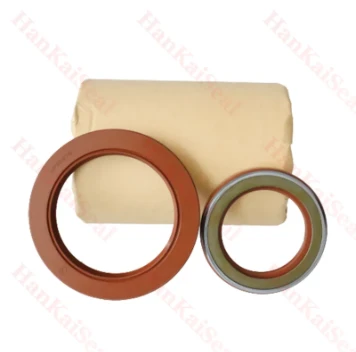Nov . 27, 2024 05:34 Back to list
Oil Solutions for Optimal Wheel Hub Performance and Longevity
The Importance of Oil for Wheel Hubs in Automotive Maintenance
In the realm of automotive maintenance, one often overlooked aspect is the lubrication of wheel hubs. While many car owners focus on engine oil changes, tire rotations, and brake checks, the significance of ensuring that the wheel hubs are adequately lubricated cannot be understated. This article delves into the importance of oil for wheel hubs, the types of oils available, and the best practices for maintaining these crucial components.
Understanding Wheel Hubs
Wheel hubs are pivotal components that connect the wheels to the vehicle’s axle. They house the wheel bearings and are responsible for allowing the wheels to rotate smoothly. Due to the considerable forces exerted during operation, wheel hubs experience friction and heat. Proper lubrication, typically in the form of grease or oil, is essential to reduce wear and tear, prevent overheating, and ensure a smooth driving experience.
The Role of Oil in Wheel Hubs
The primary function of oil in wheel hubs is to reduce friction between moving parts. When wheel bearings are lubricated, it allows them to spin freely without excessive wear. Over time, the lubricant can break down due to heat, contamination, and usage, which can lead to the development of dry spots or friction hotspots within the hub. This can cause premature wear of the bearings and, if left unaddressed, can lead to catastrophic failure, resulting in costly repairs and safety hazards.
Types of Lubricants for Wheel Hubs
There are various types of lubricants that can be used for wheel hubs, including
1. Grease Most common in wheel hub applications due to its ability to stay in place and resist washing away under various conditions. Grease typically contains a thickener and base oil, providing excellent protection and longevity.
2. Oil In certain racing or high-performance applications, oil may be used due to its ability to reduce friction more effectively than grease. However, oil may require more frequent changes as it can leak out or degrade faster than grease.
oil for wheel hub

3. Synthetic lubricants These are designed to offer better performance in extreme conditions, providing broader temperature ranges and improved protection against wear and corrosion. They tend to last longer, reducing the frequency of maintenance.
Best Practices for Wheel Hub Maintenance
To maximize the lifespan and performance of your wheel hubs, consider the following best practices
1. Regular Inspections Schedule regular inspections during routine maintenance. This includes checking for signs of excessive wear, leaks, or unusual noises that could indicate lubrication issues.
2. Change Lubricant as Recommended Follow the manufacturer's guidelines for lubricant change intervals. While some vehicles may specify grease changes every 30,000 miles, others may require different intervals based on the type of oil or grease used.
3. Use the Correct Lubricant Always refer to your vehicle’s owner manual to ensure you are using the correct type and grade of lubricant. Using the wrong lubricant can result in decreased performance and potential damage.
4. Keep Hubs Clean Maintain cleanliness around the wheel hub area. Dirt and moisture can contaminate the lubricant, reducing its effectiveness and leading to corrosion.
5. Seek Professional Help If you are not confident in performing maintenance yourself, consult with a professional mechanic. They can provide valuable insights and perform thorough inspections to ensure your wheel hubs are in optimum condition.
Conclusion
Oil for wheel hubs plays a critical role in automotive performance and safety. Neglecting this aspect of vehicle maintenance can lead to serious issues and costly repairs. By understanding the importance of lubrication, selecting the right type of oil, and adhering to best maintenance practices, vehicle owners can ensure their wheel hubs function effectively for years to come. Regular attention to this often-overlooked component not only enhances vehicle performance but also contributes significantly to overall road safety. Prioritizing wheel hub maintenance is a vital aspect of responsible vehicle ownership, ultimately leading to a smoother and safer driving experience.
-
TCN Oil Seal Metal Ring Reinforcement for Heavy Machinery
NewsJul.25,2025
-
Rotary Lip Seal Spring-Loaded Design for High-Speed Applications
NewsJul.25,2025
-
Hydraulic Cylinder Seals Polyurethane Material for High-Impact Jobs
NewsJul.25,2025
-
High Pressure Oil Seal Polyurethane Coating Wear Resistance
NewsJul.25,2025
-
Dust Proof Seal Double Lip Design for Construction Equipment
NewsJul.25,2025
-
Hub Seal Polyurethane Wear Resistance in Agricultural Vehicles
NewsJul.25,2025
-
The Trans-formative Journey of Wheel Hub Oil Seals
NewsJun.06,2025
Products categories
















